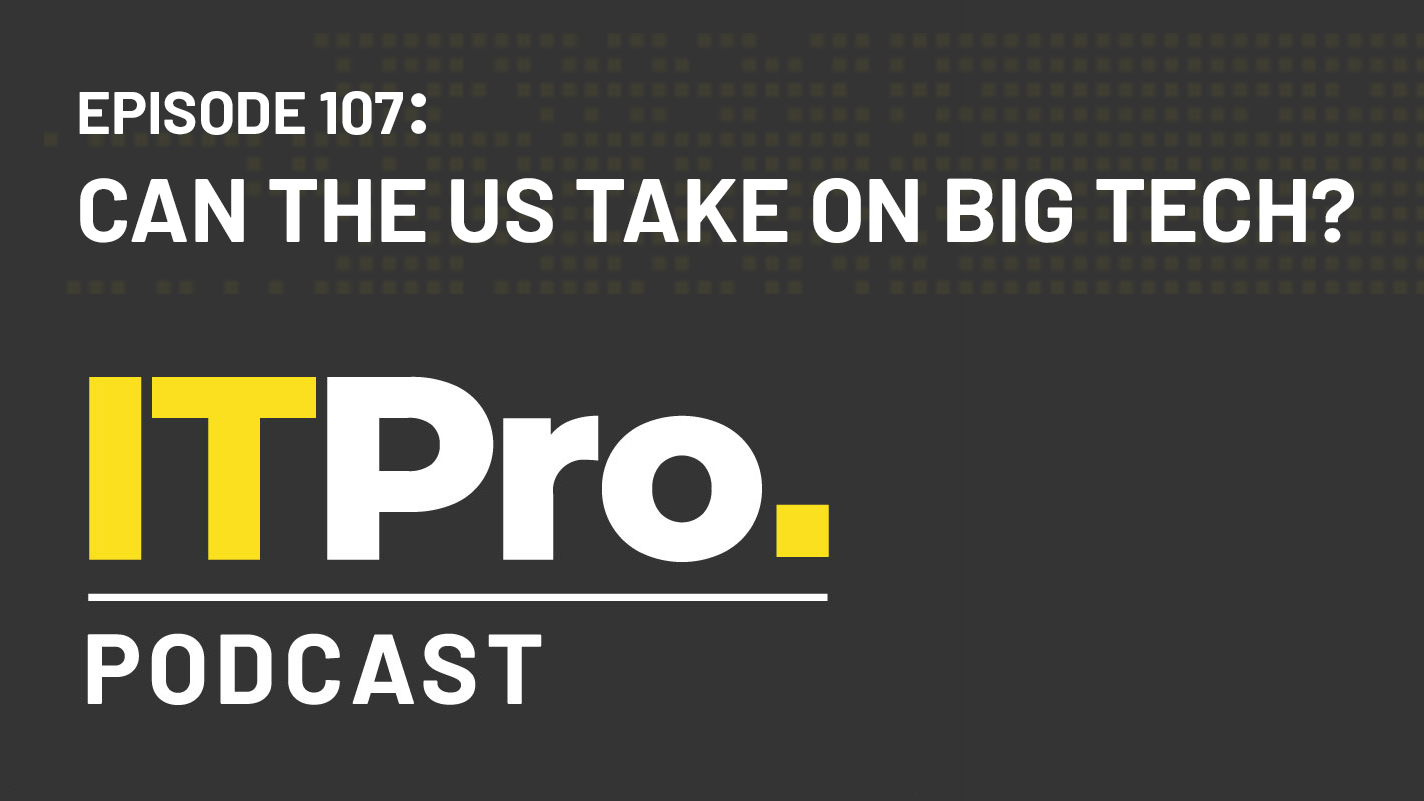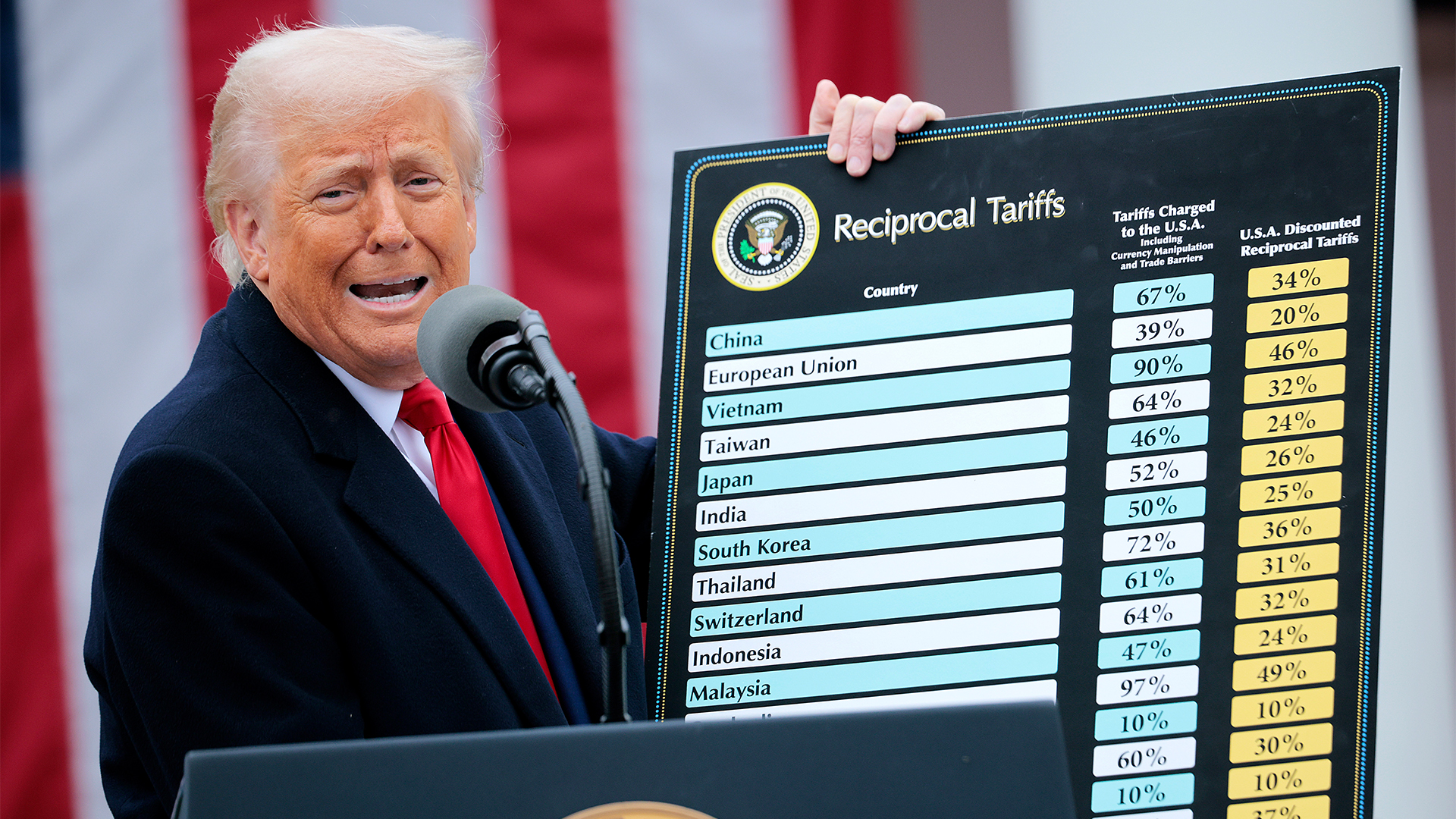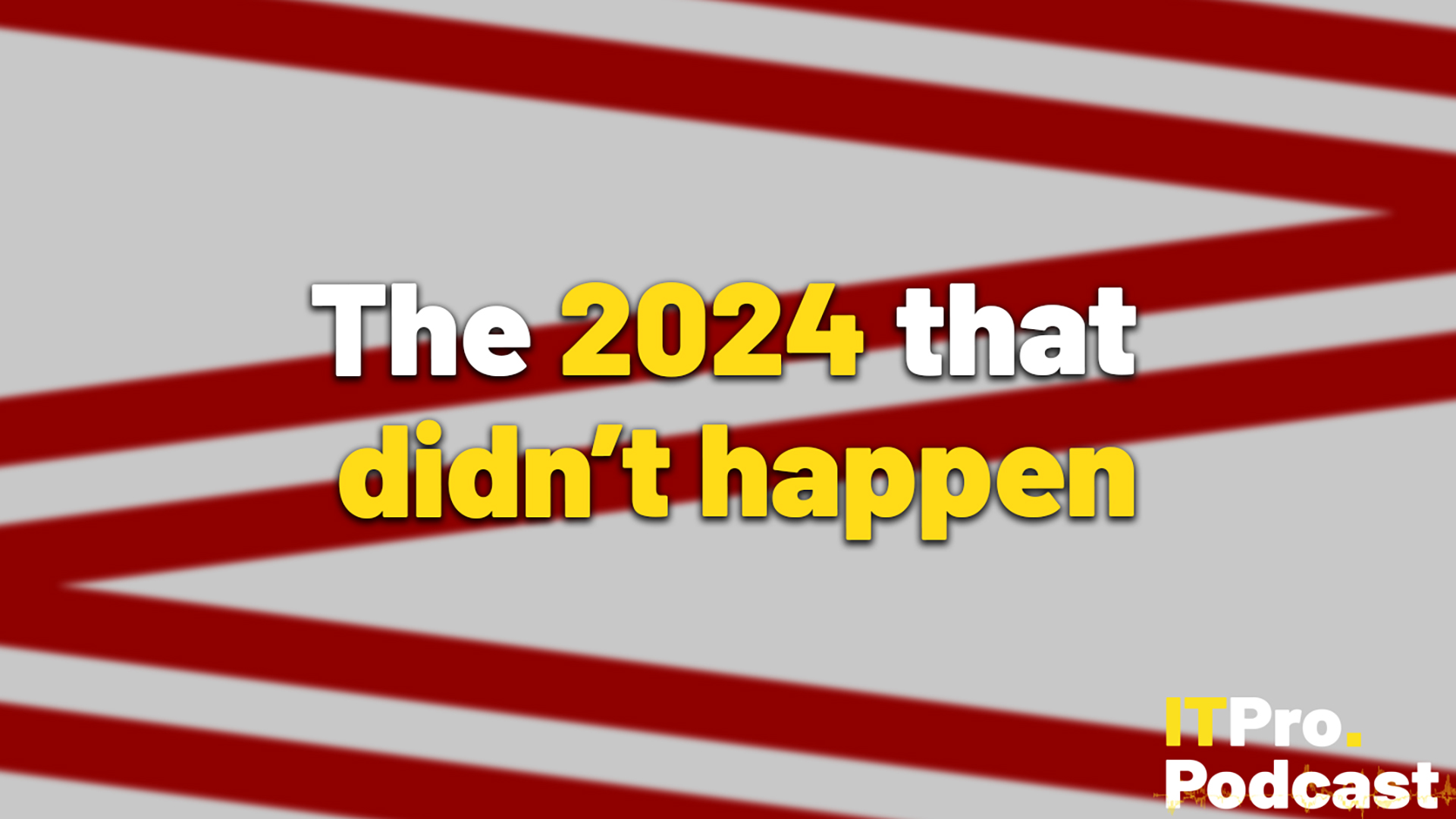The IT Pro Podcast: Can the US take on big tech?
We take a look at the multiple anti-monopoly bills being aimed a Silicon Valley giants

The growth of major tech companies over the last decade has been seemingly unstoppable, but as organisations like Facebook, Microsoft and Google work their way ever deeper into our lives, the US government has set its sights on curtailing the worst of their perceived excesses. A number of bills have been introduced by both parties to try and limit their power in areas like data portability, market consolidation and self-regulation.
But why are lawmakers so up in arms about the conduct of tech companies? What behaviour has prompted this? And do these bills have any real chance of slowing tech companies growth, or will they die on the floor of the house? In this week’s episode, Zach Marzouk and Justin Cupler return to discuss the US’ current slate of anti-monopoly legislation, and what it could mean for the country’s business climate.
Highlights
“I think the most legitimate one I see on here, the one that has the most grounds to stand on, is the limiting of mergers and acquisitions. Because now you have startups that are literally starting up just for the plain goal of being acquired by one of the big giants. And these giants are gobbling them up, changing the name, putting it under their umbrella and running with it. And that is limiting a lot of innovation. It's limiting people who legitimately want to get a startup running, want to run this as an actual startup that's going to be successful. It's limiting those people's ability to do this in lieu of the people who want to go out there and just sell their startup for a billion dollars.”
“You can definitely bring in regulation to curb the power of big tech, but I don't know if it will go far enough, especially since the bills are still being discussed. So we don't know what the final bill would look like. I think if you look at China, and see what they've done in terms of regulation, which is probably the other end of the spectrum, compared to the US, they're definitely taking a stance against big tech. They're curtailing the power of tech giants, firing CEOs and so on. But I don't know if the US is going to go all the way and bring in the right legislation that will address the power of big tech.”
Read the full transcript here.
Footnotes
- What is Section 230 and why does it matter?
- The IT Pro Podcast: Beating Trump on tech
- Senators seek to reform Section 230 protections
- The IT Pro Podcast: What does Joe Biden have in store for tech?
- Apple appeals Epic ruling in attempt to delay App Store changes
- Microsoft backs right to repair following investor revolt
- US targets big tech dominance with new antitrust bills
- Facebook calls for data portability legislation
- Facebook blames faulty configuration change for hours-long outage
- Microsoft to shutdown LinkedIn in China
- What is China’s Personal Information Protection Law (PIPL)?
- China plots tougher cyber scrutiny for tech firms in Hong Kong IPOs
- Nick Clegg: Stop throwing rocks at Facebook
- New tools make it easier to run a business across Facebook's app ecosystem
- US senators demand Zuckerberg answers Facebook whistleblower's claims
- Zuckerberg will fight US lawmakers’ big tech breakup measures
- Lawmakers seek to rein in big tech with bills aimed at competition and liability | The Guardian
Subscribe
- Subscribe to The IT Pro Podcast on Apple Podcasts
- Subscribe to The IT Pro Podcast on Google Podcasts
- Subscribe to The IT Pro Podcast on Spotify
- Subscribe to the IT Pro newsletter
- Subscribe to IT Pro 20/20
Get the ITPro daily newsletter
Sign up today and you will receive a free copy of our Future Focus 2025 report - the leading guidance on AI, cybersecurity and other IT challenges as per 700+ senior executives
ITPro is a global business technology website providing the latest news, analysis, and business insight for IT decision-makers. Whether it's cyber security, cloud computing, IT infrastructure, or business strategy, we aim to equip leaders with the data they need to make informed IT investments.
For regular updates delivered to your inbox and social feeds, be sure to sign up to our daily newsletter and follow on us LinkedIn and Twitter.
-
 The Race Is On for Higher Ed to Adapt: Equity in Hyflex Learning
The Race Is On for Higher Ed to Adapt: Equity in Hyflex LearningBy ITPro
-
 Google faces 'first of its kind' class action for search ads overcharging in UK
Google faces 'first of its kind' class action for search ads overcharging in UKNews Google faces a "first of its kind" £5 billion lawsuit in the UK over accusations it has a monopoly in digital advertising that allows it to overcharge customers.
By Nicole Kobie
-
 IDC warns US tariffs will impact tech sector spending
IDC warns US tariffs will impact tech sector spendingNews IDC has warned that the US government's sweeping tariffs could cut global IT spending in half over the next six months.
By Bobby Hellard
-
 Four-day weeks and Nadella's AGI skepticism
Four-day weeks and Nadella's AGI skepticismITPro Podcast As the Microsoft chief casts doubt on ultra-advanced AI systems, a famous security blogger has fallen victim to a classic attack
By Rory Bathgate
-
 Creating space for women in tech
Creating space for women in techITPro Podcast Tech's huge gender divide can only be tackled with more welcoming, proactive sectoral efforts
By Rory Bathgate
-
 What is the EU's AI plan?
What is the EU's AI plan?ITPro Podcast As the EU moves to enable AI innovation, it could end up striking the perfect balance between regulation and public support – especially as US AI laws become more complex
By Rory Bathgate
-
 US government urged to overhaul outdated technology
US government urged to overhaul outdated technologyNews A review from the US Government Accountability Office (GAO) has found legacy technology and outdated IT systems are negatively impacting efficiency.
By George Fitzmaurice
-
 The trends we’re watching in 2025
The trends we’re watching in 2025AI for security and sovereign cloud could be top driving forces in the coming year
By Jane McCallion
-
 The 2024 that didn't happen
The 2024 that didn't happenThese are the megatrends of the year that failed to materialise
By Jane McCallion
-
 What DORA means for business
What DORA means for businessITPro Podcast Stringent requirements for third party monitoring and ongoing resilience testing could help put businesses on the best track for security
By Rory Bathgate
